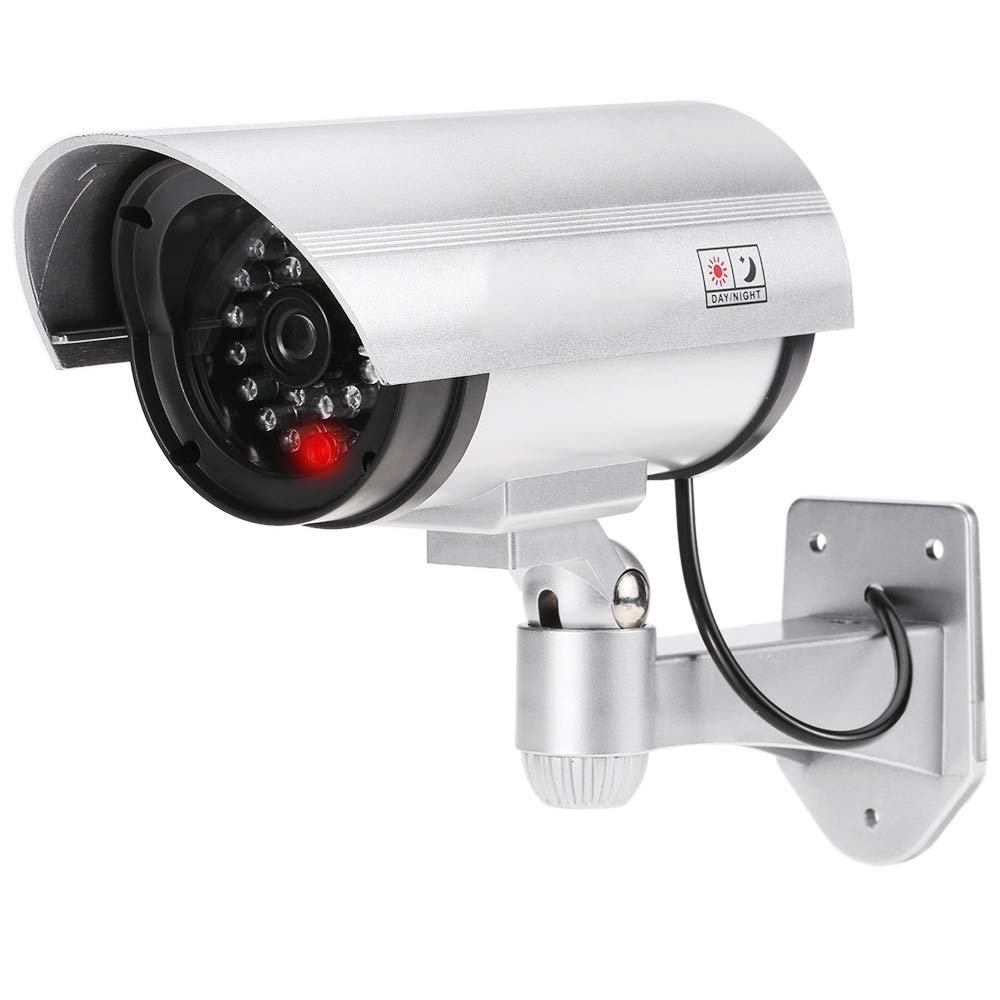If you are looking for what CCTV technology is and how it works, i have an answer. Discover the world of CCTV technology and how it works with this comprehensive guide. Learn about the components involved, such as cameras, monitors, and recorders, and explore the functionalities of CCTV systems.
Understand the role of CCTV in surveillance and security, its benefits, and potential privacy implications. Gain insights into camera placement, legal compliance, data storage, and privacy protection measures to ensure responsible and effective use of CCTV technology.
What is CCTV?
CCTV stands for Closed-Circuit Television. It refers to a system that uses video cameras to transmit signals to a specific set of monitors or recorders for surveillance and security purposes.
It is also a system of cameras used to transmit a signal to a specific place, on a limited set of monitors. It differs from broadcast television in that the signal is not openly transmitted, though it may employ point-to-point (P2P), point-to-multipoint (P2MP), or mesh wired or wireless links.
is a system of cameras used to transmit a signal to a specific place, on a limited set of monitors. It differs from broadcast television in that the signal is not openly transmitted, though it may employ point-to-point (P2P), point-to-multipoint (P2MP), or mesh wired or wireless links. Even though almost all video cameras fit this definition, the term is most often applied to those used for surveillance in areas that require additional security or ongoing monitoring (Videotelephony is seldom called “CCTV”).
Application Areas of CCTV
CCTV systems are used in a wide variety of settings, including:
- Public spaces, such as streets, parks, and train stations
- Private businesses, such as banks, stores, and warehouses
- Government buildings, such as courthouses and prisons
- Residential homes and apartments
Reasons for Using CCTV
CCTV systems can be used for a variety of purposes, including:
- Security: CCTV can be used to deter crime and to identify criminals after a crime has been committed.
- Safety: CCTV can be used to monitor people and activities in high-risk areas, such as construction sites and schools.
- Loss prevention: CCTV can be used to prevent theft and vandalism.
- Quality assurance: CCTV can be used to monitor employee performance and to ensure that products and services are being delivered to a high standard.
CCTV systems can be either analog or digital. Analog CCTV systems use a single signal to transmit the video image, while digital CCTV systems use multiple signals to transmit the image. Digital CCTV systems are generally more expensive than analog CCTV systems, but they offer a number of advantages, including:
- Higher image quality
- Greater flexibility in terms of recording and viewing options
- Increased security, as digital signals are less susceptible to interference
CCTV systems can be either wired or wireless. Wired CCTV systems are more reliable and provide a higher quality image, but they can be more difficult to install. Wireless CCTV systems are easier to install, but they can be more susceptible to interference.
How Does CCTV Works?
CCTV systems work by capturing images from a camera and transmitting them to a recorder or monitor. The images can be recorded for later viewing or monitoring in real time.
The basic components of a CCTV system are:
- Camera: The camera captures the images.
- Recorder: The recorder stores the images.
- Monitor: The monitor displays the images.
- Cables or wireless connection: The cables or wireless connection transmit the images from the camera to the recorder and monitor.
CCTV systems can be either analog or digital. Analog CCTV systems use a single signal to transmit the video image, while digital CCTV systems use multiple signals to transmit the image. Digital CCTV systems are generally more expensive than analog CCTV systems, but they offer a number of advantages, including:
- Higher image quality
- Greater flexibility in terms of recording and viewing options
- Increased security, as digital signals are less susceptible to interference
CCTV systems can be either wired or wireless. Wired CCTV systems are more reliable and provide a higher quality image, but they can be more difficult to install. Wireless CCTV systems are easier to install, but they can be more susceptible to interference.
The cost of a CCTV system will vary depending on the number of cameras, the type of cameras, and the features of the system. CCTV systems can range in price from a few hundred dollars to several thousand dollars.
CCTV systems can be a valuable tool for security and safety. However, it is important to note that CCTV systems are not a perfect solution. They can be expensive to install and maintain, and they can be easily disabled by criminals. Additionally, CCTV systems can raise privacy concerns.
Here are the steps on how CCTV works:
- The camera captures the images.
- The images are transmitted to the recorder or monitor via cables or wireless connection.
- The recorder stores the images.
- The monitor displays the images.
CCTV systems can be used for a variety of purposes, including:
- Security: CCTV can be used to deter crime and to identify criminals after a crime has been committed.
- Safety: CCTV can be used to monitor people and activities in high-risk areas, such as construction sites and schools.
- Loss prevention: CCTV can be used to prevent theft and vandalism.
- Quality assurance: CCTV can be used to monitor employee performance and to ensure that products and services are being delivered to a high standard.
CCTV systems are used in a wide variety of settings, including:
- Public spaces, such as streets, parks, and train stations
- Private businesses, such as banks, stores, and warehouses
- Government buildings, such as courthouses and prisons
- Residential homes and apartments
Benefits of CCTV in Smart Cities
CCTV can be a valuable tool for improving the safety and efficiency of smart cities. However, it is important to note that CCTV systems are not a perfect solution. They can be expensive to install and maintain, and they can be easily disabled by criminals. Additionally, CCTV systems can raise privacy concerns.
CCTV systems can also be used to improve the efficiency of city operations. For example, CCTV can be used to:
- Monitor traffic flow and identify traffic congestion hotspots.
- Track the movement of public transportation vehicles.
- Monitor the condition of infrastructure, such as bridges and buildings.
- Respond to emergencies, such as fires and floods.
CCTV systems can be a valuable tool for improving the safety and efficiency of smart cities. However, it is important to note that CCTV systems are not a perfect solution. They can be expensive to install and maintain, and they can be easily disabled by criminals. Additionally, CCTV systems can raise privacy concerns.
Here are some of the benefits of CCTV in smart cities:
- Improved security: CCTV can help to deter crime and to identify criminals after a crime has been committed. This can make people feel safer and more secure in their communities.
- Improved traffic management: CCTV can be used to monitor traffic flow and identify traffic congestion hotspots. This information can be used to improve traffic management and to reduce congestion.
- Improved public transportation: CCTV can be used to track the movement of public transportation vehicles. This information can be used to improve the efficiency of public transportation and to ensure that vehicles are running on time.
- Improved infrastructure monitoring: CCTV can be used to monitor the condition of infrastructure, such as bridges and buildings. This information can be used to identify potential problems before they cause major disruptions.
- Improved emergency response: CCTV can be used to respond to emergencies, such as fires and floods. This information can be used to send first responders to the scene of the emergency as quickly as possible.
How Does CCTV See at Night?
CCTV cameras can see at night using a variety of technologies, including:
- Infrared (IR) light: IR cameras emit invisible light that is invisible to the human eye. This light is reflected off of objects and then detected by the camera’s sensor. IR cameras can see in darkness up to a certain distance, depending on the camera’s specifications.
- White light: Some CCTV cameras use white light to illuminate the scene at night. This light is often provided by a spotlight or floodlight that is mounted on the camera. White light cameras can provide better image quality than IR cameras, but they can also be more easily seen by criminals.
- Combination: Some CCTV cameras use a combination of IR and white light to see at night. This provides the best of both worlds, as the camera can see in darkness and provide good image quality.
The type of CCTV camera that is best for a particular application will depend on a number of factors, including the amount of light available, the desired image quality, and the budget.
What are the drawbacks of CCTV?
CCTV systems can also have some drawbacks, including:
- Privacy concerns: Some people are concerned about the privacy implications of CCTV systems. They worry that they are being constantly watched and that their movements are being tracked.
- Cost: CCTV systems can be expensive to install and maintain.
- Vandalism: CCTV systems can be vandalized, which can damage the equipment and make it difficult to obtain footage.
How do I choose the right CCTV system for my needs?
There are a number of factors to consider when choosing a CCTV system, including:
- The size of the area you want to monitor
- The type of activity you want to monitor
- The budget you have available
How do I use CCTV footage?
CCTV footage can be used for a variety of purposes, including:
- To identify criminals after a crime has been committed
- To provide evidence in court
- To monitor employee performance
- To ensure that products and services are being delivered to a high standard
Tips to Conquer Privacy Implications of CCTV Systems
Here are some tips to conquer privacy implications of CCTV systems:
- Be aware of your surroundings: When you are in an area that is monitored by CCTV, be aware of where the cameras are located and how they are positioned. This will help you to avoid being caught on camera if you do not want to be.
- Cover your face: If you are concerned about your privacy, you can cover your face with a scarf, hat, or sunglasses. This will make it more difficult for the cameras to identify you.
- Be careful what you say: If you are in an area that is monitored by CCTV, be careful what you say. Anything you say could be recorded and used against you later.
- Ask for permission: If you are in a private area that is monitored by CCTV, you can ask the owner of the property for permission to be recorded. If they refuse, you should respect their wishes and not enter the area.
- Report any concerns: If you have any concerns about the use of CCTV, you can report them to the local authorities. They will investigate the matter and take appropriate action if necessary.
- Be aware of the laws in your area: The laws governing CCTV vary from country to country. In some countries, it is illegal to record people without their consent. In other countries, it is legal to record people in public places, but it is illegal to record people in private places without their consent.
- Know your rights: If you are in a country where it is illegal to record people without their consent, you have the right to ask the person who is recording you to stop. If they refuse, you can report them to the police.
- Be assertive: If you are concerned about your privacy, you should be assertive and let the person who is recording you know that you do not want to be recorded. If they refuse to stop, you should report them to the police.
CCTV Maintenance Tips at Home
Here are some guidelines for maintaining your home CCTV system:
- Regularly clean the cameras: Use a soft, dry cloth to wipe down the camera lenses and remove any dust, dirt, or fingerprints. For stubborn stains, you can use a mild cleaning solution, but avoid harsh chemicals that could damage the lens.
- Inspect cables and connections: Ensure that all cables and connections are secure and free from damage. If you notice any issues, promptly repair or replace the damaged components.
- Test the system periodically: Check the video footage to ensure that the system is functioning properly. Look for any blank spots or choppy images and troubleshoot and resolve any problems promptly.
- Backup the footage: Regularly back up your CCTV footage to protect it from system failures or theft. You can save the footage on a separate hard drive, cloud storage, or both, to ensure its safety.
- Keep software up to date: Install software updates provided by the manufacturer to keep your system current and secure. Regular updates help protect against potential security vulnerabilities.
- Consider professional maintenance: If you’re not comfortable maintaining your CCTV system yourself, consider hiring a professional service. They can provide regular maintenance and ensure your system is in optimal working condition.







